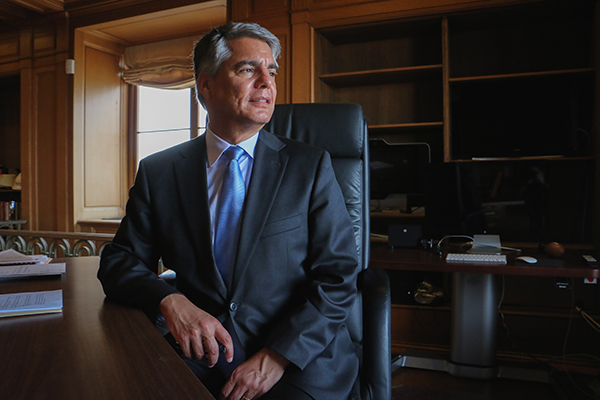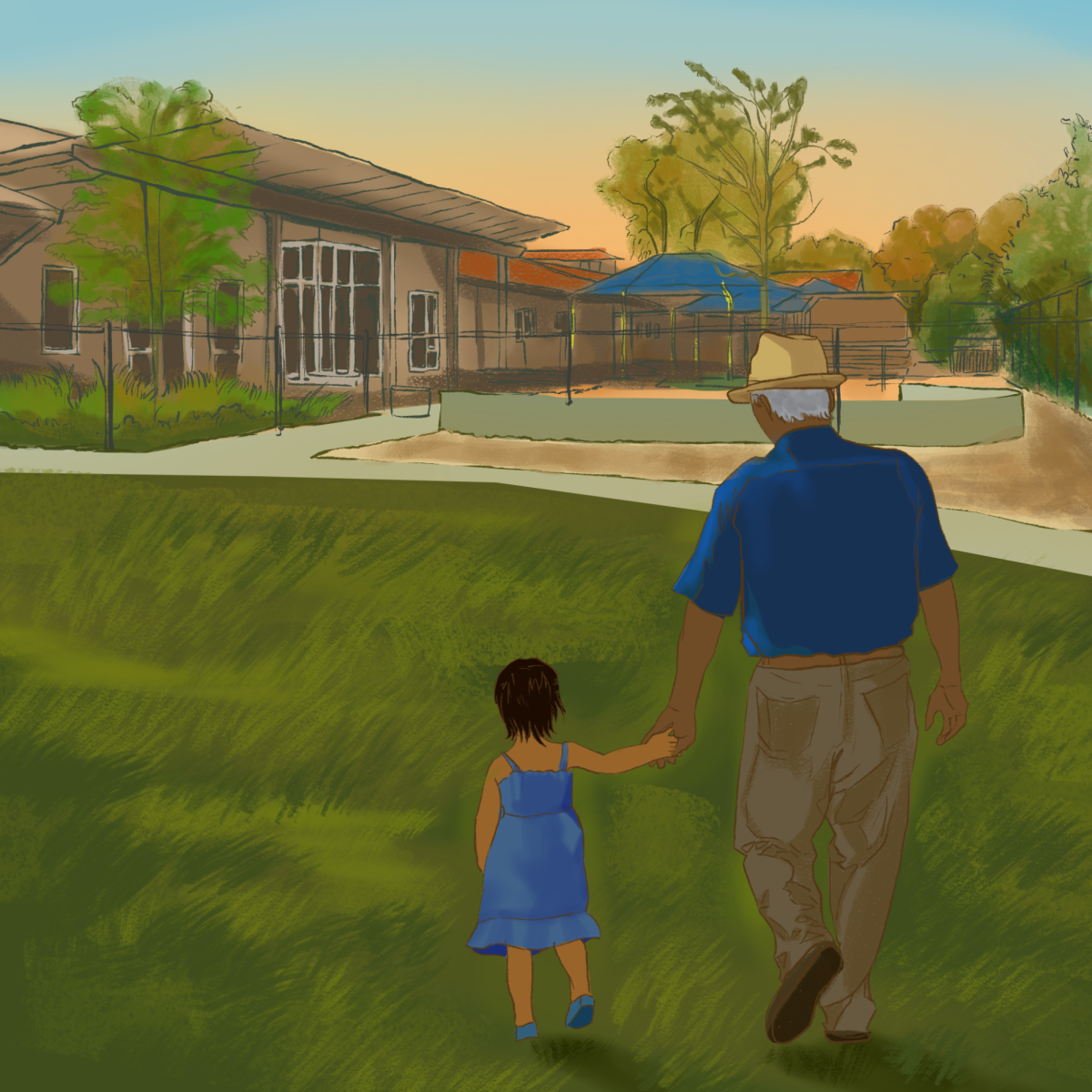As UT President Gregory Fenves prepares to depart from his position in June, he reflects on his five-year term and what he learned from leading the University.
Fenves said he was planning to leave the University this summer before the COVID-19 outbreak and the implementation of social distancing policies, but he believes the University can endure the pandemic while he moves on to Emory University.
“One of the reasons I felt that it was the right time to leave after five years is we have a very strong leadership team,” Fenves said. “Dean (Jay) Hartzell is among that strong leadership.”
Jay Hartzell, McCombs School of Business dean, will begin serving as interim president June 1.
Before being selected as the 29th president of UT-Austin in 2015, Fenves was the executive vice president and provost under President William Powers. Fenves said the two worked closely together on student initiatives, such as increasing graduation rates.
“I don’t think he gave me any special advice as the transition was taking place because we knew each other so well,” Fenves said. “One of the reasons I came to UT in 2008 was because of President Powers.”
Fenves was appointed as University president June 3, 2015. Six months later, he was in Washington to defend the University’s admissions policies on affirmative action in Fisher v. University of Texas at Austin.
“Preparing for the defense of our use of race and ethnicity in admissions … was a very formative time for me early in my presidency,” Fenves said.
Fenves said diversity has been an important aspect of his work as president since the Supreme Court upheld UT’s admissions policies.
“One of my favorite photos in my office is on the steps of the Supreme Court after the oral arguments with one of our former students, Christle Nwora, speaking to the crowd about the educational benefits of diversity for all students,” Fenves said.
His first year was a tumultuous time, Fenves said, marked by success and tragedy.
Within his first two years as president, freshmen Haruka Weiser and Harrison Brown were killed in two separate incidents on campus. Weiser was killed in 2016, and Meechaiel Criner was found guilty of her murder in 2018. Brown was killed during the 2017 stabbing outside of Gregory Gym.
Fenves said after these incidents, he thought of his own two daughters, who have graduated from college, and how he worries whenever they’re away.
“The murders of the two students were the hardest thing I’ve had to deal with,” Fenves said. “It was devastating.”
Student safety continued to be a concern when students protested UT’s sexual misconduct policies throughout the fall 2019 semester. Students called for the firing of Sahotra Sarkar, philosophy and integrative biology professor, and English associate professor Coleman Hutchison, who were found in violation of UT’s sexual misconduct policies.
In January, Fenves, along with Vice President and Provost Maurie McInnis and Dean of Students Soncia Reagins-Lilly, attended an open forum where students voiced their opinions on the University’s sexual misconduct policies.
“It was important for me to hear those voices,” Fenves said. “They were very heartfelt, and they were very emotional, and they were very strong.”
He said the most important thing for a university leader to do is to listen to the voices of the community.
“You’ve got to start out with listening because the problems are often different than what you think they are,” Fenves said. “The issues are often more nuanced and more difficult than you have thought.”
Fenves said this year’s graduation would be “bittersweet” as it is his last UT commencement as president and also the graduation of Dell Medical School’s inaugural class. Plans for a medical school in Austin were approved in 2008, developing into the campus that opened in 2016. He said construction of the school would not have been possible without support from the Austin community.
“It is a milestone for the University,” Fenves said. “Dell Medical School is one of the signature accomplishments of this university, I would say, in the past 50 years.”
While the University handles the unprecedented challenges of COVID-19 going into fall, Fenves said he is confident that UT is in good hands.
“We have very strong leadership,” Fenves said. “And having seen how the University changed so quickly over the past two months, that wasn’t because I’m sitting in this office — it’s because of everyone who is working so hard.”




















